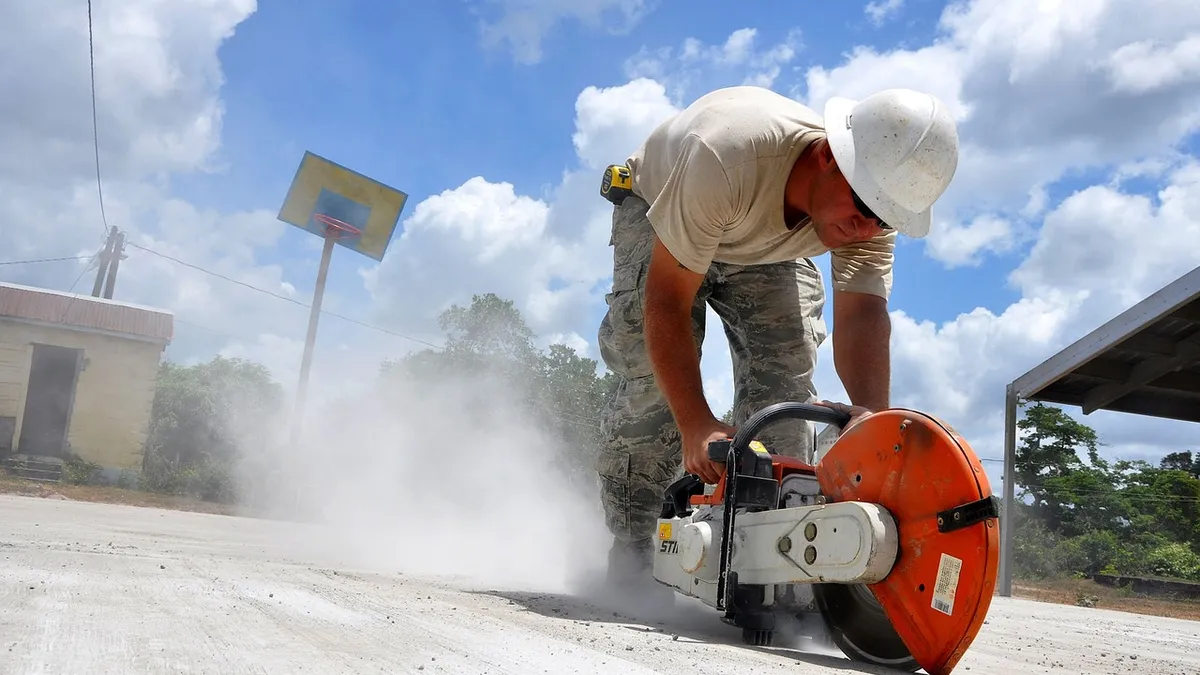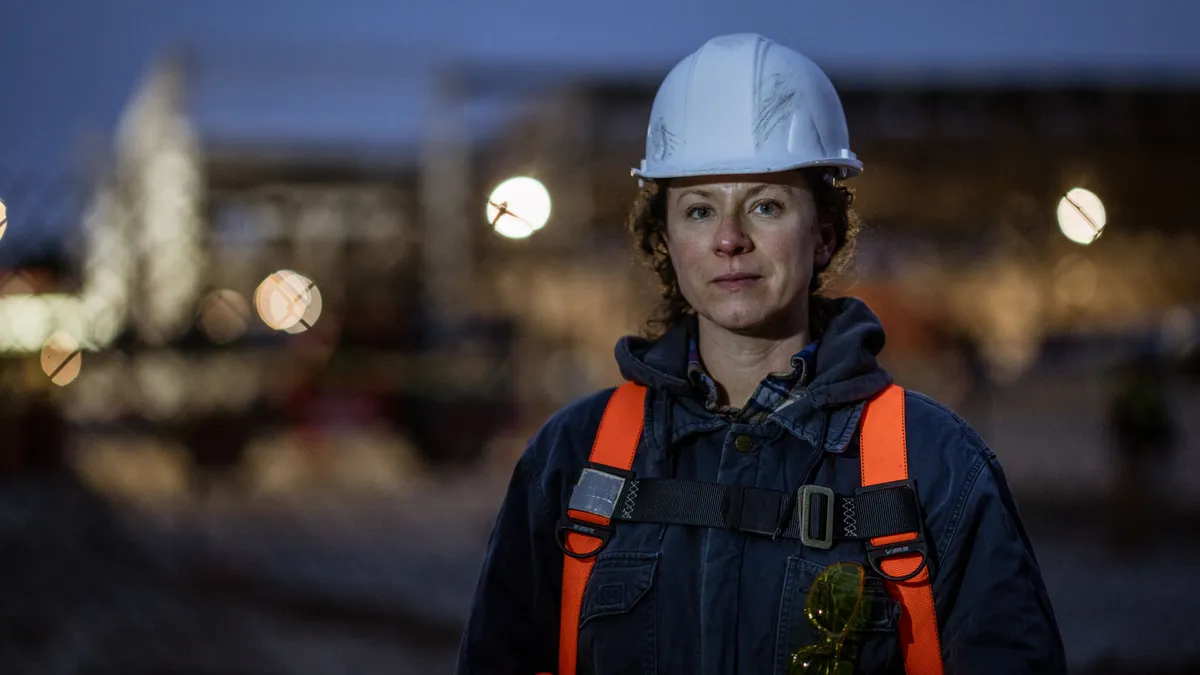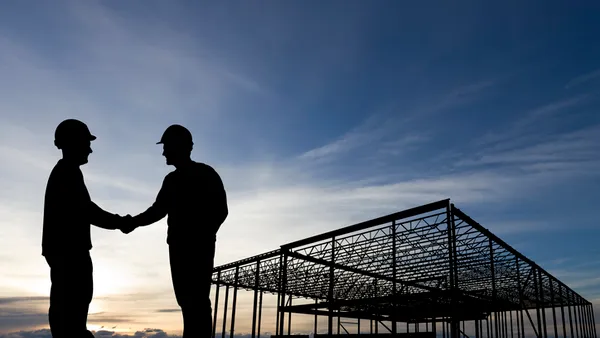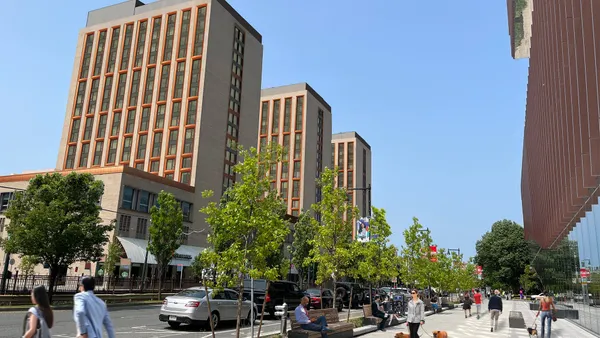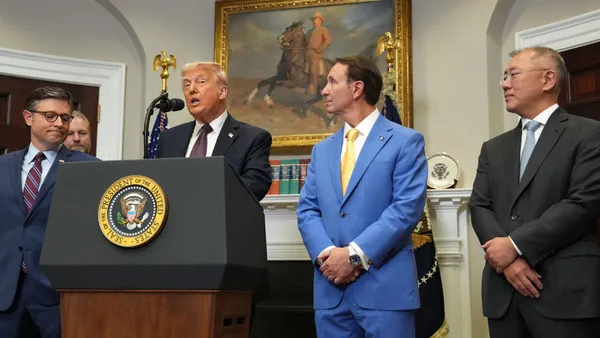Dive Brief:
- A new Associated Builders and Contractors list of state policies and programs ranks states for merit shop construction.
- Arizona topped the rankings in the association's 2020 Merit Shop Scorecard for the first time, based on the state’s promotion of free enterprise and investment in workforce training. Georgia followed Arizona in second place this year, up from fifth in 2019. Florida, a year-to-year high performer, remained in the top five after two years in the top rank in 2018 and 2019.
- Conversely, Virginia fell the most in the rankings, dropping more than 15 spots from 15th in 2019 to 31st this year. In 2020, Virginia’s legislature instituted a statewide prevailing wage and repealed the Fair and Open Competition Act, which had allowed qualified businesses to compete for public works projects without project labor agreements.
Dive Insight:
In addition, the District of Columbia fell from 46th to last place this year due to a poor record in workforce development outcomes and the continued implementation of anti-free enterprise policies. Alaska, California, Illinois and Washington rounded out the bottom tier of states, each receiving F ratings in project labor agreements, prevailing wage and right-to-work policies for the sixth year in a row.
| Best States | Ranking | Worst States | Ranking |
|---|---|---|---|
| Arizona | 1 | New York | 42 |
| Georgia | 2 | Rhode Island | 43 |
| South Carolina | 3 | Hawaii | 44 |
| Florida | 4 | Connecticut | 45 |
| Wisconsin | 5 | Illinois | 46 |
| Arkansas | 6 | New Jersey | 47 |
| Iowa | 7 | Washington | 48 |
| Idaho | 8 | California | 49 |
| Alabama | 9 | Alaska | 50 |
| Kentucky | 10 | District of Columbia | 51 |
Rankings have been assigned primarily based on the core issues concerning merit shop construction, including state policies on Right to Work, prevailing wage and government-mandated project labor agreements.
ABC officials also considered a number of other factors that impact the industry, including state authorization or prohibition of public-private partnerships, availability of grants and incentives for employers that value training, and inclusion of career and technical education credits in high school requirements, among others.
The issue of union labor could become front and center next year under the new administration. President-elect Joe Biden has stated his intention to "strengthen worker organizing, collective bargaining and unions."
Pro-union legislation like the PRO (Protect the Right to Organize) Act will depend on whether the U.S. Senate retains its Republican majority. Mike Bellaman, president and CEO of the ABC, told Construction Dive that the PRO Act could potentially take away workers' choice to join a union or not.
"The first thing it does, which I don't think many people really understand, is it overrides 27 states that have been through a democratic process to decide that they want to be a right to work state," Bellaman said, referring to states that have banned compulsory union membership for workers. In those states, workers can still choose to join a union, but can't be forced to.
"It does a significant amount to the process of employee choice to determine do they want to work in an organized environment or not, or a non-union, non-organized environment."
Policies that encourage merit shop environments will be vital to help state economies recover from the coronavirus pandemic, said Ben Brubeck, ABC’s vice president of regulatory, labor and state affairs.
“The merit shop contractor can flourish in free enterprise environments created in states like Arizona and Florida, which has positive ripple effects on a state’s overall economic growth," he said.



